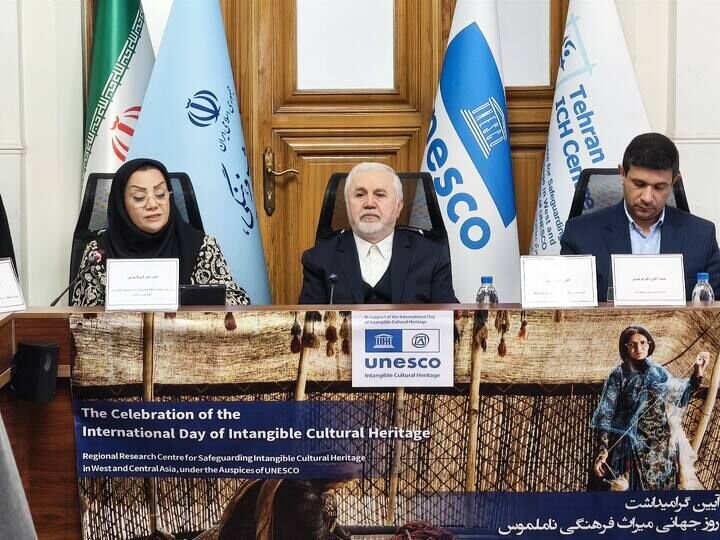Iran advances to fourth place globally in intangible cultural heritage rankings

TEHRAN- Iran has risen from seventh to fourth place globally in intangible cultural heritage, the Deputy Minister for Cultural Heritage has announced.
Over the past four years, Iran has improved its standing from seventh to fourth position and currently leads in the registration of multinational heritage files, Ali Darabi has said.
He made these remarks on Sunday during a ceremony in Tehran celebrating the International Day of Intangible Cultural Heritage, which was attended by various cultural heritage officials.
In his remarks at the ceremony, he emphasized the importance of intangible cultural heritage as a vital asset of society, one that is transmitted from generation to generation and from era to era, CHTN reported on Monday.
He stressed the importance of transforming cultural heritage literacy into a shared cultural value within society, asserting that cultural heritage should be accessible and significant to all. Furthermore, Darabi pointed out the vital role of cultural heritage in public diplomacy, noting that the primary aim of public diplomacy is to influence public opinion, facilitated through cultural exchanges such as exhibitions, festivals, and sister-city relationships.
Emphasizing the need for networking and coordination both domestically and internationally, he called for all effective institutions in the country to contribute to this cause.
"Cultural heritage does not belong to any single institution but is the responsibility of all components and individuals in the nation. We must have short-term, mid-term, and long-term plans, and we need to have a significant presence on the global stage," he stated.
Intangible cultural heritage refers to the practices, expressions, knowledge, and skills that communities, groups, and individuals recognize as part of their cultural inheritance. Unlike tangible heritage, such as monuments and artifacts, intangible cultural heritage includes traditions, oral histories, performing arts, social practices, rituals, and festive events. This form of heritage plays a crucial role in maintaining cultural diversity in the face of globalization, as it fosters a sense of identity and continuity among communities, allowing them to express their values, histories, and social cohesion.
The preservation of intangible cultural heritage is essential for promoting cultural sustainability and fostering mutual respect among diverse cultures. Recognized by the United Nations Educational, Scientific and Cultural Organization (UNESCO) through the Convention for the Safeguarding of the Intangible Cultural Heritage, efforts are being made to safeguard these practices through documentation, education, and community involvement.
By engaging local communities in preserving their traditions and encouraging intergenerational transmission, intangible cultural heritage not only enriches the cultural landscape but also empowers communities, enhances social cohesion, and promotes a deeper understanding of cultural diversity on a global scale.
SAB/
Leave a Comment